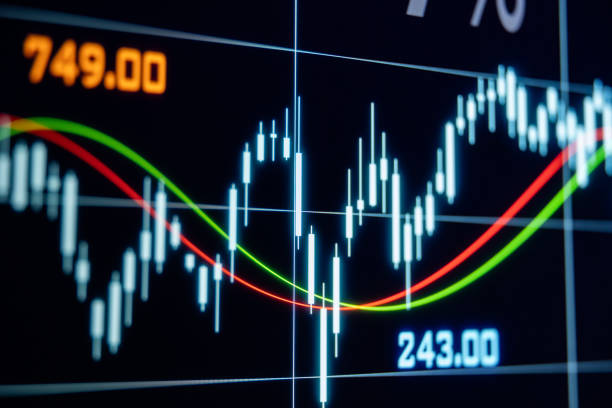The bottom line: FSOC report acknowledges threat of climate change to financial stability and promulgates recommendations that should be beneficial to asset owners and investors.
FSOC report issued last week, which recognizes the emerging threat of climate change, sets out specific recommendations on risk measurement, quantification and disclosures
On October 21st the Financial Stability Oversight Council (FSOC) issued its Report on Climate -Related Financial Risk¹. The report covers several broad themes along with some 35 specific recommendations directed at U.S. financial regulators that set forth necessary actions to identify and address climate-related risks to the financial system and promote the resilience of the financial system to those risks. The specific recommendations, focused on risk measurement, quantification and disclosures, fall into four key areas. These include building capacity and expanding efforts to address climate-related financial risks, filling gaps in climate-related data and methodologies, enhancing public climate-related disclosures, assessing and mitigating climate-related risks to financial stability. In our view, the recommendations rightly avoid restricting lending practices—an approach more in line with European regulations with their emphasis on impact or “double materiality.” But also, FSOC’s initiative should serve to accelerate ESG integration practices among asset owners and investors, lead to the convergence and consistency in regulations applicable domestically and hopefully internationally and, in the case of regulations that fall specifically under the remit of the Securities and Exchange Commission (SEC), lead to a reduction in investor confusion and misunderstanding regarding sustainable investing.
Climate change now viewed as an emerging threat to the financial stability of the United States
The Financial Stability Oversight Council (FSOC), which was established in 2010 pursuant to the Dodd-Frank Wall Street Reform and Consumer Protection Act, is charged with identifying and responding to emerging threats to U.S. financial stability. In this capacity, FSOC has been monitoring climate-related financial risks that are now viewed as an emerging threat to the financial stability of the United States. In its report, FSOC echoes the Intergovernmental Panel on Climate Change (IPCC) conclusion that “climate change is impacting every region of the Earth’s climate, these impacts are intensifying, and some of these impacts, such as sea-level rise, are likely to be irreversible. Increasing adverse effects from climate change to households, communities, and businesses will exacerbate climate-related risks to the U.S. and global financial systems if not addressed.” FSOC notes that 2020 was a “historic year of extremes” for the United States, based on data provided by the National Oceanic and Atmospheric Administration’s (NOAA’s) National Centers for Environmental Information (NCEI). NOAA reported that 2020 recorded $22 billion-dollar-or-greater weather and climate disasters, a record number of such events, which caused a combined $95 billion in damages in the U.S. Moreover, the 2020 experience reflected a long-running trend, as the frequency and costs of severe weather-related events have been rising over the last two decades. Refer to Chart 1. This trend reflects the impact of climate change, as well as other factors, such as increased economic development in high-risk areas. Worldwide, losses may be almost 3X higher. According to a report issued by AON, economic losses from natural disasters were estimated at $268 billion in 2020².
Chart 1: United States billion-dollar climate and weather disaster events
Notes of Explanation: Event counts and total cost estimates reflect weather and climate disaster events with costs exceeding on billion in CPI-adjusted 2020 dollars. Source: NOAA NCEI, “Billion-Dollar Weather and Climate Disasters.”
FSOC’s efforts should benefit asset owners and investors
In addition to benefiting from the specific recommendations that are intended to support an “orderly, economy-wide transition toward the goal of net-zero emissions,” the efforts of the FSOC should benefit asset owners and investors in the following additional ways:
- First, the report notes that climate-related risks to the financial system are increasing and the economic costs from climate change are expected to grow; and it also describes how the economic and financial consequences of climate change can be a source of shocks to the financial system and threaten financial stability. While asset owners, investment managers, investors and others have already begun to factor relevant and material ESG risks generally and climate risks in particular into investment decisions, such efforts are likely to be stepped up and accelerated.
- FSOC Council members, which include 10 voting member entities and two non-voting member organizations³, including the Securities and Exchange Commission (SEC), are expected to coordinate and speed up deliberations related to the recommendations made by FSOC. This should be beneficial as regulations applicable to the various constituencies supervised by these entities are likely to converge and be more consistent. Also, in the case of the SEC, regulations are expected to include, but not necessarily be limited to, further climate-related material risk disclosures covering public issuers. In addition, the SEC may attempt to clarify ESG investing approaches by promulgating a sustainable fund classification framework covering sustainable funds and sustainable ETFs as well as manager disclosures relating to the adoption of sustainable investing strategies, methodologies, criteria and possibly outcomes. In combination, such actions would serve to address the confusion and misunderstanding that has arisen in the marketplace as well as in the minds of sustainable investors4.
- FSOC’s acknowledges the interconnectedness of the global financial system and advocates in favor of working with their international counterparts, such as the Financial Stability Board (FSB), the Basel Committee on Banking Supervision (BCBS), International Organization of Securities Commissions (IOSCO), International Association of Insurance Supervisors (IAIS), Sustainable Insurance Forum (SIF), International Monetary Fund (IMF) and Network of Central Banks and Supervisors for Greening the Financial System (NGFS). Especially relevant for financial firms with operations overseas, a cooperative effort is more likely to lead to harmonized rules and regulations and diminish the potential for divergence that may already be emerging between Europe’s impact oriented regulatory direction and the US ESG risk-oriented approach.
¹ Full report at: FSOC Report on Climate-Related Financial Risk (treasury.gov)
² Source: AON. Weather, Climate & Catastrophe Insight: 2020 Annual Report
³ The Council is composed of ten voting members who head the U.S. Department of the Treasury, the Board of Governors of the Federal Reserve System (Federal Reserve Board or FRB), the Office of the Comptroller of the Currency (OCC), the Consumer Financial Protection Bureau (Bureau or CFPB), the Securities and Exchange Commission (SEC), the Federal Deposit Insurance Corporation (FDIC), the Commodity Futures Trading Commission (CFTC), the Federal Housing Finance Agency (FHFA), and the National Credit Union Administration (NCUA), along with the independent member with insurance expertise, plus five nonvoting members. Two of the nonvoting members head the Office of Financial Research (OFR) and the Federal Insurance Office (FIO). The other three nonvoting members are a state insurance commissioner, a state banking supervisor, and a state securities commissioner designated by their peers.
4 Refer to https://sustainableinvest.com/rapid-growth-in-esg-funds-calls-for-adoption-of-standards/






